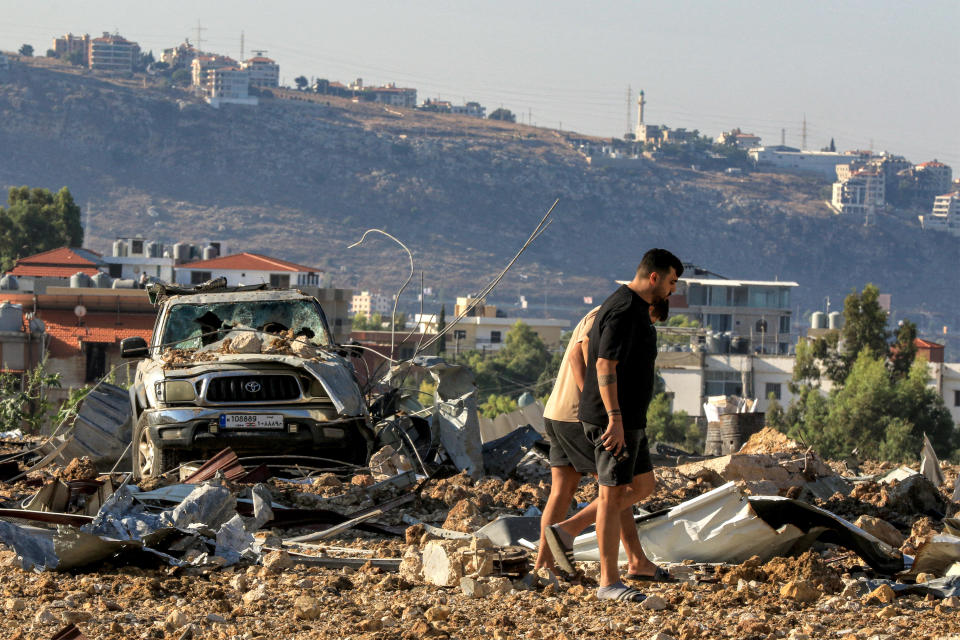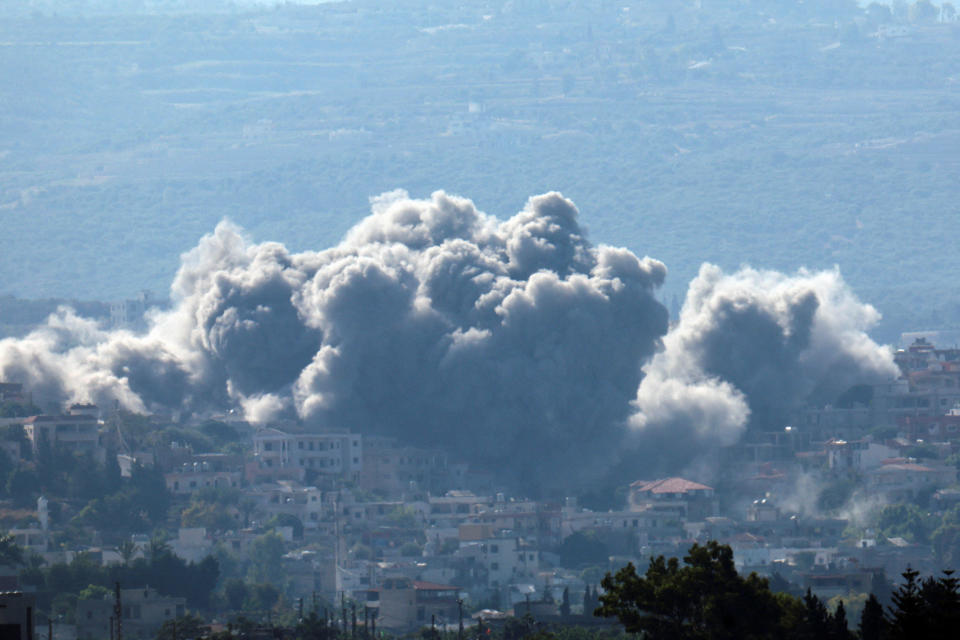Israeli Prime Minister Benjamin Netanyahu’s office deflected international calls for a cease-fire with Hezbollah Thursday, hours after President Biden and French President Emmanuel Macron issued a joint statement calling for them to back a temporary truce proposal with wide international support. The U.S. and French leaders called Wednesday on both sides in the high-stakes standoff to back the proposal, but neither had indicated any support by Thursday, and the exchange of deadly fire continued.
“This is an American-French proposal that the Prime Minister has not even responded to,” Netanyahu’s office said Thursday, adding a dismissal of a separate report suggesting the Israeli leader had told his military to “moderate” its assault on Hezbollah to give space for discussion about a possible cease-fire.
“The report about the purported directive to ease up on the fighting in the north is the opposite of the truth,” Netanyahu’s office said. “The Prime Minister has directed the IDF to continue fighting with full force.”
Israel’s Foreign Minister Israel Katz said definitively on social media early Thursday: “There will be no cease-fire in the north.”

Mr. Biden and Macron, both in New York this week for the United Nations General Assembly, issued their joint call late Tuesday for a temporary cease-fire between Israel and Hezbollah after a week of Israeli airstrikes that have killed more than 630 people in Lebanon, according to the country’s health ministry.
Several people have been wounded in Israel by the unrelenting barrage of Hezbollah rockets and drones, which are mostly shot down by the country’s advanced missile defense systems.
The escalation in the violence began on Oct. 8, as Hezbollah said it was attacking Israel in support of Palestinians in the Gaza Strip coming under fire as Israel launched its devastating retaliation for Hamas’ terrorist attack the previous day.
The exchange of fire between Israel and Hezbollah — which is larger and far better armed than its Hamas allies — has fueled fear of a wider war in the Middle East that could draw the U.S., as Israel’s closest ally, and Hezbollah’s backer Iran, directly into the fighting.
Tens of thousands of people from communities on both sides of the border had already been driven from their homes by the ongoing exchange of fire, and since Israel started hammering Hezbollah targets in Lebanon with airstrikes last week, many thousands more have fled from the south of the country.


“It is time for a settlement on the Israel-Lebanon border that ensures safety and security to enable civilians to return to their homes,” the U.S.-French statement said. “The exchange of fire since October 7th, and in particular over the past two weeks, threatens a much broader conflict, and harm to civilians. We therefore have worked together in recent days on a joint call for a temporary ceasefire to give diplomacy a chance to succeed and avoid further escalations across the border.”
Mr. Biden and Macron said their cease-fire proposal had been endorsed by the U.S., Australia, Canada, the European Union, France, Germany, Italy, Japan, Saudi Arabia, the United Arab Emirates and Qatar.
“We call for broad endorsement and for the immediate support of the Governments of Israel and Lebanon,” the two leaders said.
The IDF said overnight that the Israeli Air Force had struck “approximately 75 terror targets belonging to the Hezbollah terrorist organization in the area of Beqaa and in southern Lebanon, including weapons storage facilities, ready-to-fire launchers, terrorists, and terrorist infrastructure.”
On Thursday, Lebanon’s state-run news agency reported that an Israeli airstrike had hit a building housing workers from Syria, killing 23 people and wounding eight, according to The Associated Press.
Sneak peek: The Bathtub Murder of Kendy Howard
Mother of Alabama shooting victim describes pain of losing daughter: “She had a life ahead of her”
Bill to help protect California seniors from scammers waits for Gov. Newsom’s signature


